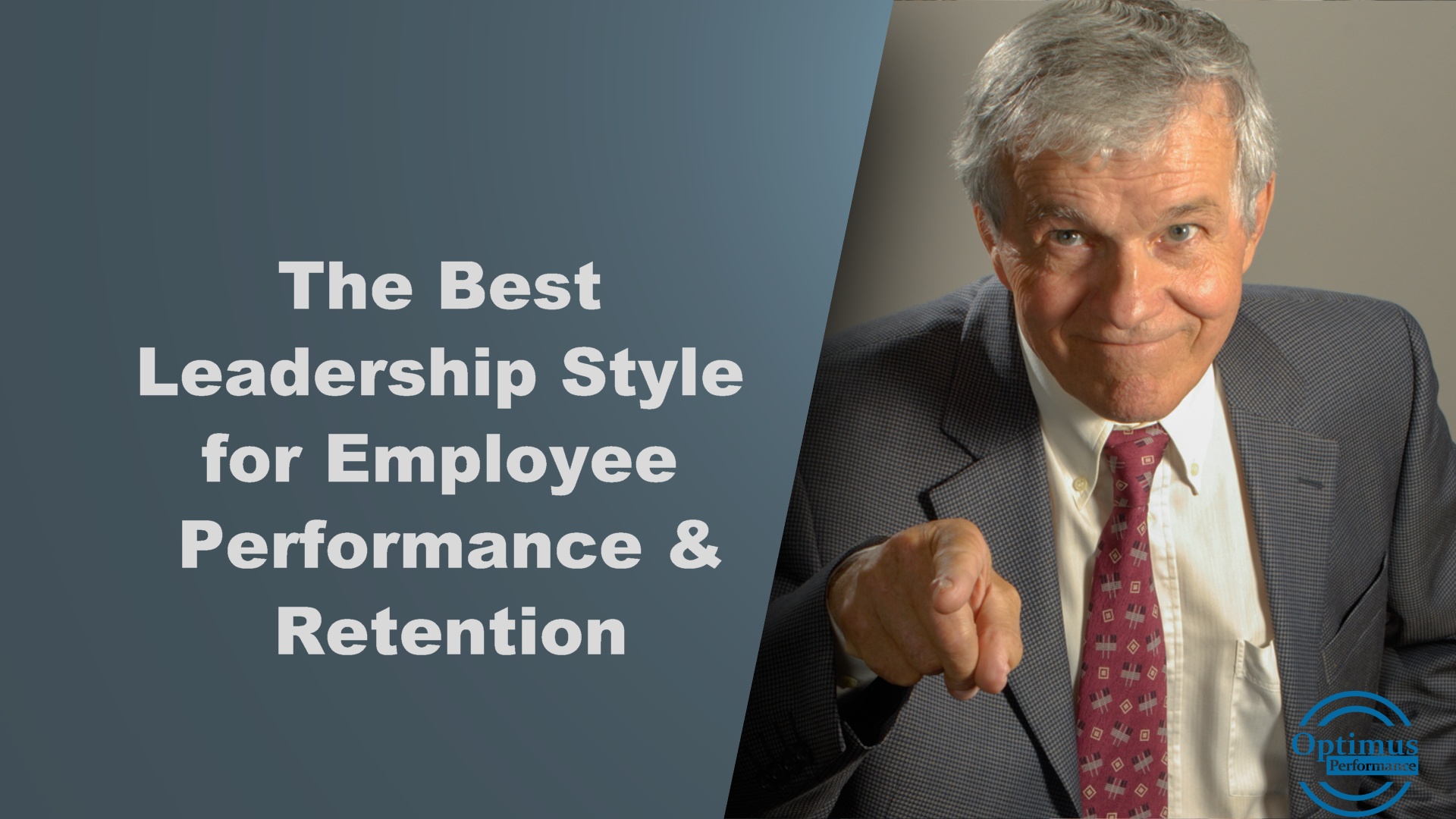The Best Leadership Style for Improved Employee Performance & Retention
Your leadership style has a direct impact on employee performance as well as employee retention. To use the best leadership style requires some understanding of the various styles of leadership as well as developing self-knowledge.
Self-knowledge is important because your inborn motivations, fears, strengths and weaknesses impact your leadership style. By understanding yourself better you can control what influences your leadership style and adjust for the person and situation.
I recently spoke with a general manager of a construction business who has four direct report project managers. They supervise construction workers daily and manage the day to day operations of their projects.
One manager is very goal and results driven. He has no problem confronting employees and shouting orders. The problem is that he lacks diplomacy in his approach with the workers and comes across as aggressive at times. His employees have complained about this and some have just left to work elsewhere.
The general manager realized the importance of leadership development and becoming better balanced as a leader. This means balancing the use of your three intelligences for the person and situation.
The three intelligences are the intuitive (body) intelligence, the emotional (heart) intelligence and the intellectual (mind) intelligence. All three are important and need to function in harmony. Some people are more intuitive by nature and others may be dominated more by emotions or the intellect.
By learning about yourself and the three intelligences you can better develop the qualities of all the intelligences to work for you in greater balance. Therefore, personal development is greatly important and brings tremendous benefits.
In the case of the project manager who is motivated by results and very direct with employees, his greatest fear is ineffectiveness. He fears that if employees are not productive and doing things the right (his) way, then he cannot achieve the results and goals he has in mind. This type tends to put tasks (getting things done) over people and they often do not realize the impact their directness and lack of diplomacy has on others. This type needs to develop the quality of diplomacy and become more empathic with his employees.
The emotional dominant type is more sensitive to people and how they feel. But they may fear conflict or becoming disliked. This could cause them to avoid confrontations and saying no.
The intellectual dominant type can be great idea generators, problem solvers and strategists. But they could forget to consider the ideas of employees or over analyze decisions and hold back change.
The evolved leader/manager is one who understands how to adapt to the needs of his employees and each situation. A leader who is body intelligence dominant as described in the example above, would work on developing diplomacy and active listening to improve his relationship with his employees.
This would build trust and when an urgent situation occurred the required a more control and command style leadership, the employees would understand why the leader is acting that way.
A good analogy is the fire chief who works with his crew to train and coach them when there is no fire. But as soon as a fire occurs the chief takes on a command style role. All the firefighters know that this style of leadership is what is required in that situation to save property and lives.
Humans are like a rainbow, processing all the colours in the universe. Our colours are our positive traits and so we need to have them all available to us when needed. It is the wise and evolved leader who can use these traits and be instantly adaptable to the person and situation.
To learn more about what type of person you are please consult the book CrazyZoo, Know-Thyself Made Easy by Fritz Glaus.
